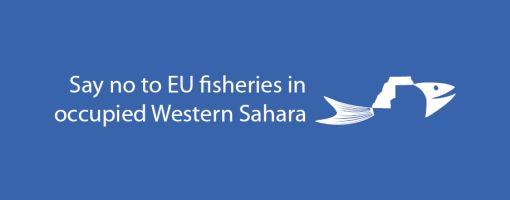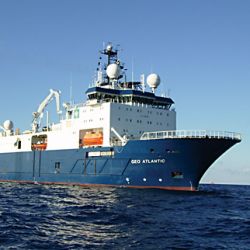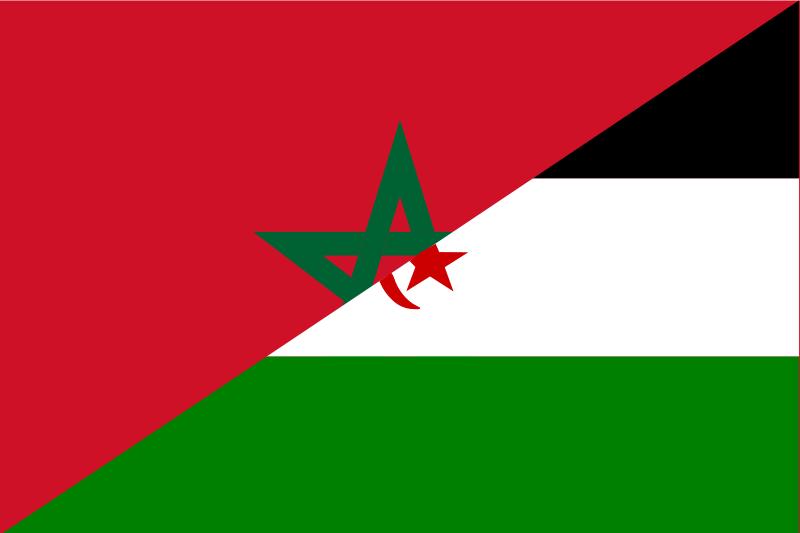 “Since Morocco does not exercise internationally recognised sovereignty over Western Sahara, Western Sahara is not seen as a part of Morocco’s territory in relation to this agreement. The Free Trade Agreement is thus not applicable to goods from Western Sahara”, stated Norwegian Minister of Foreign Affairs, Mr. Jonas Gahr Støre (picture on the left) in Norwegian Parliament on 11 May 2010 regarding the Free Trade Agreement between EFTA and Morocco.
“Since Morocco does not exercise internationally recognised sovereignty over Western Sahara, Western Sahara is not seen as a part of Morocco’s territory in relation to this agreement. The Free Trade Agreement is thus not applicable to goods from Western Sahara”, stated Norwegian Minister of Foreign Affairs, Mr. Jonas Gahr Støre (picture on the left) in Norwegian Parliament on 11 May 2010 regarding the Free Trade Agreement between EFTA and Morocco.
The clarification from the Minster follows an import scandal that has been unrolled in Norwegian media over the last weeks, involving the president of the Norwegian business association, millions of euros in tax evasions, ministers and refugees. As a result of the affair, it has become clear that the practice of EFTA is in stark contrast to the policy fronted by the European Commission on trade with goods from occupied Western Sahara.
Million euro excise evasion
The European Free Trade Association (EFTA) in 1997 signed an association agreement with Morocco. Exports  from Morocco to the four EFTA states was thus made far easier, but created a loophole, giving importers a chance to export products from occupied Western Sahara free of duty if mislabeling the imports as “Moroccan”.
from Morocco to the four EFTA states was thus made far easier, but created a loophole, giving importers a chance to export products from occupied Western Sahara free of duty if mislabeling the imports as “Moroccan”.
And this is exactly what happened in Norway. A leading importing firm secretly purchased fish oil from Western Sahara for use for aquaculture industry for a decade.
The Norwegian fish oil importer, GC Rieber, by mislabeling 12-20.000 tonnes of Western Saharan fish oil annually as “Moroccan”, failed to pay customs to Norwegian authorities for perhaps as much as 50 million euros.
The reason for the tax difference, is that Norway does not recognise the Moroccan annexation of Western Sahara. Both Norway and Switzerland, the 2 biggest EFTA states, have stated that the EFTA free trade agreement with Morocco does not apply to products originating from Western Sahara.
President resigned
The affair in Norway did not get less controversial considering that the importer was owned by the President of the Confederation of Norwegian Enterprise, and that its customer in Norway has been chaired by the current Minister of Finance.
of the Confederation of Norwegian Enterprise, and that its customer in Norway has been chaired by the current Minister of Finance.
During the last few weeks, the president of the Confederation has resigned over the affair, his company is under investigation by the Norwegian Ministry of Finance, while the Minister of Finance himself, Mr. Sigbjørn Johnsen, recently was replaced by a another member of government for matters in which his impartiality might be questioned relating to this specific case.
In an answer to the Conservative Party of Norway, the Minister of Finance last week stated in parliament that he did not know about the imports during the years he chaired the company. The commerce has taken place in disregard of the policy of the Norwegian government.
the Norwegian government.
The Norwegian government asks Norwegian firms to not get involved in business in the territory, and got involved to stop the imports from Western Sahara to Norway. The imports to Norway of fish oil from the occupied territory, amounting to up to 17 million euros/year terminated in April.
14 Norwegian youth and student organisations on 6 November 2008 sent a letter to Norwegian Minister of Foreign Affairs, Mr. Jonas Gahr Støre in which they demanded that Norway should take a more active and leading role in the search for a solution to the conflict in Western Sahara.
Western Sahara – not Morocco
By clearly excluding Western Sahara territory from the application of the Free Trade Agreement, Norway applies the same interpretation as the other major EFTA country, Switzerland.
“Since Switzerland does not recognise the Moroccan annexation, the free trade agreement between EFTA and Morocco is not applicable for Western Sahara”, stated Martin Zbinden, Head of Free Trade Agreement at the Swiss State Secretariat for Economic Affairs in 2007 [Nor/Fra], when the Swiss Western Sahara committee, ARSO, investigated Swiss tomato imports.
The EFTA, “the EU light”, consists of four European countries; Switzerland, Switzerland, Liechtenstein and Iceland. The association works parallel to the EU, but still closely connected to its bigger brother. EFTA was originally established in 1960 on a UK initiative.
By excluding Western Sahara, EFTA is thus is much more clearly following the UN than the EU.
EU fishing illegal
No states in the world recognise the Moroccan annexation of Western Sahara. The EU, however, is divided over the issue of trade with the territory. Although the UN and European Parliament lawyers state that economic activity in Western Sahara is in violation of international law, the European Commission supports economic affairs in the territory through a deliberate misinterpretation of a UN advice from 2002.
This policy is mainly due to pressure from a small number of EU states with large economic investments in the occupied territory, and with close ties to Morocco.
“The EU pays the Moroccan government for fishing in waters that do not belong to Morocco. It is a unique situation in EU fisheries, implying a systematic misuse of EU taxpayer’s money. The Spanish fishing fleet is in practice subsidised by the richer EU states for violating international law in the territory”, stated Sara Eyckmans, coordinator of Western Sahara Resource Watch.
“The EU should look to EFTA and the USA [FTA], which both exclude Western Sahara from its free trade cooperation”, stated Eyckmans.
 The EU supports its fisheries in occupied Western Sahara by referring to a UN statement from 2002. The Commission has repeatedly misquoted the UN statement, causing the author of the 2002 opinion himself, the former UN undersecretary general for legal affairs, to say he is “embarrassed to be European”. Read about the former UN legal counsel’s anger at the European Commission here.
The EU supports its fisheries in occupied Western Sahara by referring to a UN statement from 2002. The Commission has repeatedly misquoted the UN statement, causing the author of the 2002 opinion himself, the former UN undersecretary general for legal affairs, to say he is “embarrassed to be European”. Read about the former UN legal counsel’s anger at the European Commission here.
Some EU states oppose the Commission’s opinion, believing that EU cooperation with Morocco should not extend to Western Sahara, a territory which the UN still works to decolonise.
Petition to EU Commission
In December 2008 no less than 426 organisations signed a petition letter, demanding from the EU Commission that occupied Western Sahara be kept clearly outside of the so- called Advanced Status cooperation that Morocco currently is being granted. The petition was sent to the EU Commission.
Among the other signatories, one finds prominent international organisations such as Solidar, the Rafto Foundation, Unrepresented Nations and Peoples Organisation and War on Want, shoulder to shoulder with individual trade unions such as the South African COSATU, the Spanish CCOO Comisiones Obreras and Union Sindical Obrera (USO), as well as the umbrella organisation The World Federation of Trade Unions.
The petition also drew support from political parties, such as the Norwegian Liberal Party, the South African Communist Party, the Australian Socialist Alliance and the Spanish Union Progreso y Democracia. The demand to exclude Western Sahara from the Moroccan Advanced Status was even backed up from within the European Institutions, through the signature of the European Parliament’s Intergroup for Western Sahara.
Phosphate and oil Import of phosphate from occupied Western Sahara is another important issue. The phosphate industry in the occupied country takes place in violation of international law. Despite Norwegian authorities have, among others, repeatedly dissuaded Norwegian companies against doing business with the occupying power in Western Sahara’s territory, this policy fails sometimes.
Import of phosphate from occupied Western Sahara is another important issue. The phosphate industry in the occupied country takes place in violation of international law. Despite Norwegian authorities have, among others, repeatedly dissuaded Norwegian companies against doing business with the occupying power in Western Sahara’s territory, this policy fails sometimes.
In 2007 company Gearbulk; its shares owned 60 % by the Jebsen-family in Bergen, Norway, exported considerable amounts of phosphate from Western Sahara to New Zealand.
In April 2008 a vessel belonging to the Norwegian ship owner company R-Bulk, transported 15.000 tonnes of phosphate from Western Sahara to Colombia. The Norwegian trade union Industry and Energy, as well as the Norwegian Support Committee for Western Sahara and Western Sahara Resource Watch protested the shipment.
The shipping company R-Bulk apologized later that one of their vessels has transported phosphates from Western Sahara, and say they will do their utmost to prevent it from happening again.
The third “Norwegian” shipping company said in June 2008 it will no longer visit ports in occupied Western Sahara.  Jinhui Shipping, registered on Oslo Stock Exchange, assured it will not contract any more business in the country.
Jinhui Shipping, registered on Oslo Stock Exchange, assured it will not contract any more business in the country.
Norwegian fertilizer giant Yara imported 16.800 tons of phosphate from Western Sahara in August 2008. The state owned company has paid Moroccan authorities for the phosphate, knowing full well that, as an occupier, it does not belong to Morocco, but is instead to be considered stolen goods.
In January 2009 a huge Norwegian research vessel from he Norwegian seismic survey company Fugro-Geoteam in secret traveled to the coast of occupied Western Sahara to carry out oil exploration, in defiance of the advice of the UN and the Norwegian government. The company has confirmed the engagement but did not release details or comments.
Europe helps Morocco occupy Western Sahara
The former chairman of the Board of the Rafto Foundation, Arne L. Lynngård said that Morocco finances the occupation of Western Sahara through the exploitation of resources.
There is little doubt that a continuation of this activity will only cause more harm to the Saharawis. They do not benefit at all from the ongoing business. The profiteers are namely Moroccan authorities and European companies.
The Saharawi human rights activist, Rafto Prize winner 2002, Sidi Mohammed Daddach said in 2008 that shipping companies are transporting stolen goods from Western Sahara.
Related links:
Left Party of Sweden recognises Western Sahara
Sahrawis dissatisfied with UN chief and peacekeeping mission MINURSO
Petition to stop the EU fisheries in Western Sahara
Occupied Western Sahara: a puzzle for the world powers
Norwegian oil company enters occupied Western Sahara
426 organisations protest EU plans for Western Sahara
Western Sahara: Campaign on Moroccan-EU partnership
Western Sahara: Strong demand for Norwegian commitment
State company reported for buying goods stolen from Western Sahara
One more shipping company quits Western Sahara assignments
Norwegian shipping company apologizes for Western Sahara shipment
Norwegian company transports phosphates from W. Sahara to Colombia





